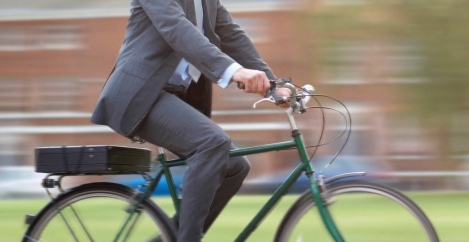June 24, 2022
Physical activity could boost UK economy by up to £17 billion
 The fitness and leisure sector holds the key to encouraging physical activity which could save the UK economy up to £17bn a year, according to a new report from ukactive. The report’s authors have called on the Government and its partners to work with the fitness and leisure sector to get the nation’s workforce physically active, as new research from Deloitte shows it could benefit the UK economy by up to £17bn a year. The landmark report was commissioned by IHRSA (International Health, Racquet and Sportsclub Association) on behalf of the Global Health and Fitness Alliance.
The fitness and leisure sector holds the key to encouraging physical activity which could save the UK economy up to £17bn a year, according to a new report from ukactive. The report’s authors have called on the Government and its partners to work with the fitness and leisure sector to get the nation’s workforce physically active, as new research from Deloitte shows it could benefit the UK economy by up to £17bn a year. The landmark report was commissioned by IHRSA (International Health, Racquet and Sportsclub Association) on behalf of the Global Health and Fitness Alliance.
The report aims to quantify the full economic and social impact of the health and fitness industry across the world on a country-by-country basis, to help policy makers make better decisions and improve people’s health and productivity across the globe.
The findings follow ukactive’s report, The Active Workforce, which found that 44.4 percent of SMEs do not provide opportunities for employees to be active during working hours, and nearly one-third (32.4 percent) do not feel their organisation has the support it needs to do so.
The new report claims:
- Physical inactivity costs the healthcare system in the UK $4.3bn (£3.5bn) annually, of which $3.6bn (£2.9bn) is borne by the public health system.
- Productivity loss due to a lack of sufficient activity was valued at $16.5bn (£13.5bn) per year.
- Each insufficiently active worker costs the nation’s economy approximately $1,713 (£1,400) in healthcare costs and lost productivity.
- Conversely, investing $1,700 (£1,389) in successfully helping an inactive person become active results in a payback period of less than one year, on average, in terms of benefit to the overall economy and society.
Together, the costings indicate that the potential economic benefit, in healthcare savings and increased productivity, of getting physically inactive workers to be active is up to $20.8bn (£17.0bn). SMEs account for 99.9 percent of UK businesses, but they have less access to, or means to provide, opportunities for physical activity, and most of the research around workplace physical activity centres on solutions for large corporate-based organisations.
ukactive said the report, which was informed by the Federation for Small Businesses, showed the need for a radical rethink of health incentivisation in the workplace – backed by tax reforms – and including expanding the Cycle to Work scheme to cover gym memberships and equipment as more people work from home.
The report underlined the importance of businesses, the fitness and leisure sector, business umbrella groups, the Government and the health sector working together to support employees of SMEs to be more active during work hours.
The Government says improving wellbeing, healthy life expectancy and productivity, and reducing health inequalities by 2030 are major objectives within its ‘Levelling Up’ agenda. Chancellor Rishi Sunak told business leaders in May: “If we want to raise productivity in this country, we need to do more to support those already in work. Our firm plan is to reduce and reform your taxes to encourage you to do all those things. That is the path to higher productivity, higher living standards, and a more prosperous and secure future.”














